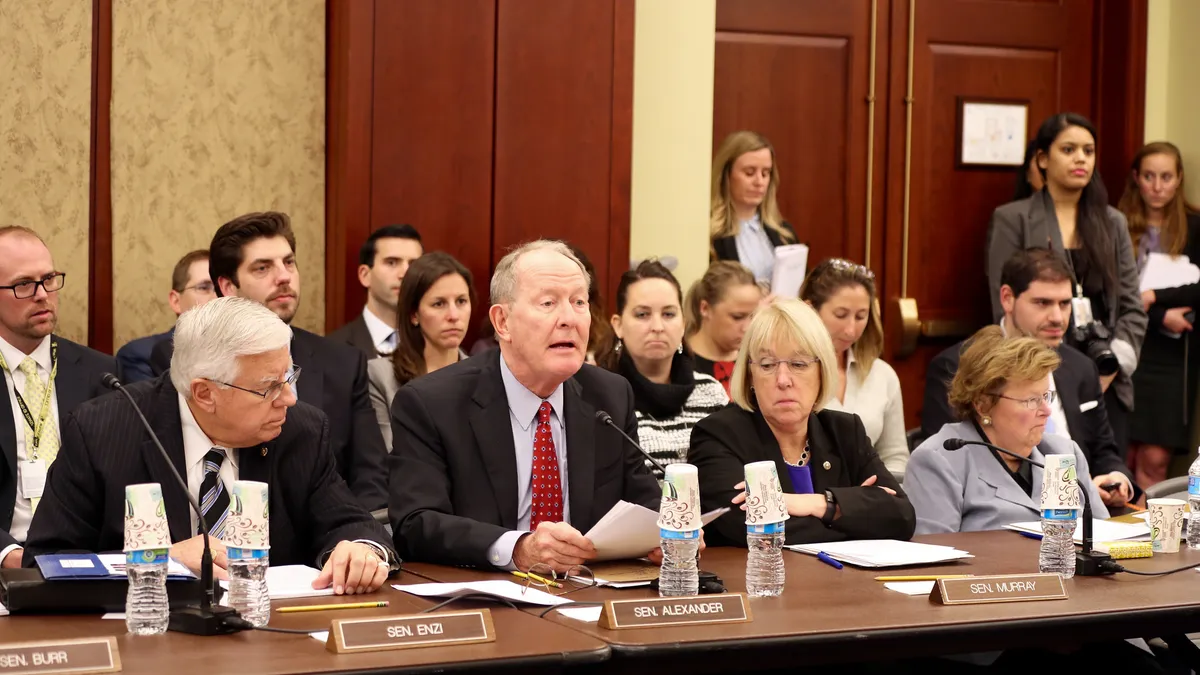Dive Brief:
- Top Senate HELP Committee Democrat Patty Murray is renewing scrutiny of FDA adverse event data showing high rates of contamination among duodenoscopes manufactured by Olympus, Fujifilm and Pentax in new letters sent to each firm Thursday.
- The senior senator from Washington, who raised concern about closed-channel duodenoscope safety in a 2016 HELP Committee report, is asking each firm how they plan to respond to FDA data revealing what the senator calls "alarmingly high rates of contamination."
- Olympus and Fujiflm told MedTech Dive they are committed to working with FDA and lawmakers to ensure duodenoscope safety. Pentax said Monday said it intends to respond to Sen. Murray's letter.
Dive Insight:
FDA in April said adverse event reports showed three deaths, 45 patient infections and 159 cases of device contamination related to inadequate reprocessing of duodenoscopes used for pancreas and bile duct procedures between Oct. 15, 2018, and March 31, 2019.
The agency also released interim results from post-market studies by the manufacturers showing higher contamination rates in duodenoscopes than were previously known: 5.4% of samples tested positive for "high concern" bacteria and an additional 3.6% found "low concern" bacteria.
In March 2018, the agency sent warning letters to the three firms for not complying with postmarket surveillance study requirements. But none of the three companies has completed the required post-market studies quickly enough, according to FDA.
"We’d like to see strong evidence that proper cleaning and reprocessing can virtually eliminate any bacteria residue that can spread infections," Center for Devices and Radiological Health Director Jeff Shuren said in a statement in April. "Currently, that evidence is lacking, and we’re considering what additional regulatory actions may be necessary."
A spokesperson for Murray told MedTech Dive that the letter to the three duodenoscope manufacturers is not meant to be duplicative of actions FDA is already taking.
"We’re asking them to give us information of what they are going to do with the data they are collecting for the FDA," the Murray spokesperson said. "We are supportive of FDA efforts, but want to know what the companies are also doing on their own — especially as FDA waits for the full data collection."
FDA declined to comment.
Murray is asking each firm for: a copy of each Medical Device Report submitted to FDA since January 2017; information on the rate of contamination for high and low risk bacteria in the interim results; when the company expects the postmarket surveillance to be completed; any analysis of the interim results; how they plan to address the study findings; if they believe closed-channel duodenoscopes are safe for patient use; what feedback users of the duodenoscopes have provided to the firm; and if there have been efforts to redesign or modify duodenoscopes to address safety concerns.
The senator is asking each firm to respond to the inquiry by May 23.
Olympus director of public relations Jennifer Bannan told MedTech Dive the postmarket data is "receiving the highest level of attention."
"We are committed to not only understanding these results but to using these learnings to enhance the reprocessing efficiency of our medical devices," Bannan said in an email. "We are conducting root cause analyses to better understand the results. We continue to examine the data and use the information to inform ongoing enhancements to customer training, product instructions, and future product development."
Editor's note: This story has been updated with Pentax's comment.











